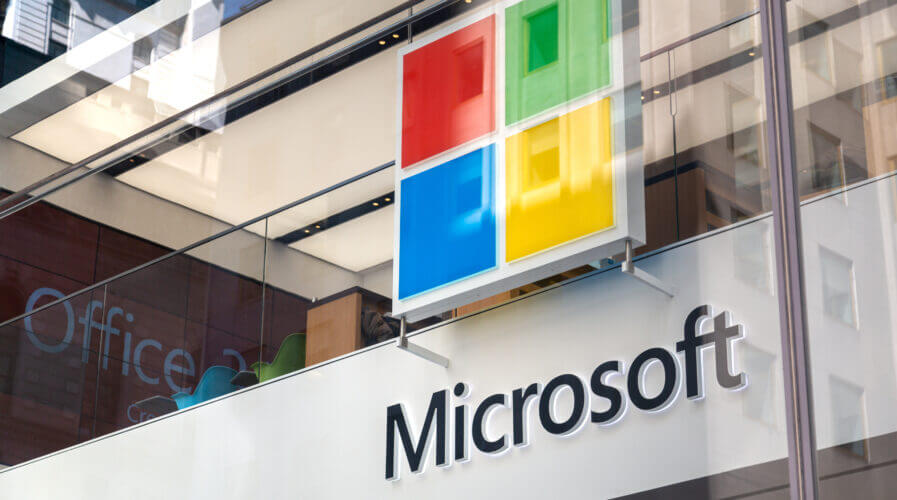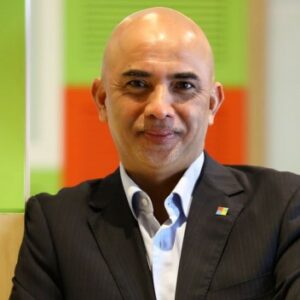
(Source – Shutterstock)
Microsoft focused on getting the best for Malaysia’s workforce
As Southeast Asian nations continue to compete with each other on their development and tech adoption, Malaysia continues to be at the forefront when it comes to developing the skills of its talent, especially in fulfilling the growing demands of the tech industry.
With several large tech companies already making significant investments in the nation for tech development, Microsoft in particular remains to be a key enabler for transforming the country. Having had its presence in Malaysia for about three decades, Microsoft continues to invest not only in developing infrastructures in the country but also in enabling the tech development of skillsets for the region’s growing workforce, both in the private and government sector.
Tech Wire Asia caught up with K Raman, Managing Director of Microsoft Malaysia to get his views on how the tech giant continues to play an important role in helping the nation achieve its development goals.

K Raman, Microsoft Malaysia Managing Director
How big is the digital skills gap in Malaysia currently when compared to the rest of the ASEAN region?
In a Global Skills Report by Coursera in 2021, Malaysia was ranked 46th, significantly behind the two higher-ranking ASEAN members, Singapore at 10th place and Vietnam at 20th place. This report indicates that Malaysia is progressing slower in digital skills literacy.
In line with Microsoft’s mission to empower every person and every organization on the planet to achieve more, a fundamental part of what we do in Malaysia is to equip people with digital and technical skills – which is reflected in our Bersama Malaysia commitment to skill an additional 1 million Malaysians by the end of 2023 to thrive in the nation’s growing digital economy and fulfill Malaysia’s ambition to be a digital-first country.
What is the biggest challenge when it comes to reskilling and upskilling the workforce in Malaysia?
When it comes to skilling, our commitment is to build a digitally inclusive Malaysia. We want to ensure that our skilling, reskilling, and upskilling initiatives are able to reach and benefit a wide group of audiences. Hence, forming partnerships is critical in helping us move towards our goal. Some of the key groups we are working with include:
- Civil servants: Equipping civil servants with digital skills and capabilities in support of MyDIGITAL Blueprint’s target to have 100% civil servants possess digital literacy. Examples include MyDIGITAL GovTech Innovation partnership and collaboration with the Sarawak government]
- Customers and partners: We work with our customers and partners through digital training, instructor-led training, events, as well as certifications. For example, our collaboration with PETRONAS to nurture a sustainable pipeline of an inclusive future-ready digital workforce through the PETRONAS Digital Academy and our commitment to upskill the community through the PETRONAS BeDigital Bootcamp.
- Educators and students: We work with schools and universities not only for the benefit of the students but also to empower educators to transform teaching and learning resources, supported by training materials and certifications. Examples include UTHM’s AI.DA and appointment by TERAJU as MARA Community College’s official skilling partner.
- Job seekers: We work with various organizations targeting job seekers / fresh graduates by equipping them with digital skills and training. Among our partners include Human Resource Development Corporation, Social Security Organization (SOCSO), Junior Achievement (JA) Malaysia, TalentCorp Malaysia, Grab, and local universities.
- Underserved communities: We also partner with non-profit organizations (NPOs) to help reach people of all socioeconomic backgrounds, including young adults and people living with disabilities – and provide them with equal opportunities to succeed in an inclusive digital economy. We partner with Biji-biji Enterprise on several programs that help enhance employability along with the Malaysia Pan-Disability Football Club as part of the APAC Enabler Program, among others.
Microsoft has announced numerous programs to solve the skill shortage problem. Can you share any updates on the state of these programs? Which ones have been the most successful?
As part of our Bersama Malaysia commitment to skill an additional 1 million Malaysians by the end of 2023, we are pleased to share that we have skilled close to 480,000 Malaysians as of July 2022 – which is about 50% of our target.
In July 2021, we announced a collaboration with SOCSO and JA Malaysia to upskill 25,000 Malaysians through the ‘Digital Skills for Tomorrow’s Jobs’ Programme. To date, we have completed the training for all 25,000 and about 100 participants have secured employment and pursued a career in the digital space.
We recently had the chance to also reconnect with a few participants from the ‘Digital Skills and Gig Economy Employability Programme’ – a joint initiative with Biji-biji Enterprise on skilling for opportunities in the gig economy. It is heart-warming to see how they have each absorbed learnings from the skilling program to become who they are today.
On the global front, Microsoft introduced a skilling initiative aimed to empower digital upskilling by enabling free access to learning resources from LinkedIn, GitHub, and Microsoft. As a result of the collective efforts with our partners, the initial target to help 25 million people worldwide were surpassed and we were able to help over 30 million people.
Microsoft has also recently embarked on an initiative called the MEET Community to bring together those who have completed Microsoft courses or certifications into one community platform to further nurture, skill, and collaborate with them through globally accredited resources, content and tools, hands-on experiences, expert connections/mentorships and the opportunity to increase their employment opportunity (for those who are seeking employment). This platform is targeted at students, fresh graduates, and even those who have been in the workforce.

(Source – Microsoft Malaysia)
Why do you think there is a lack of digital skills in Malaysia? Is it caused by a lack of interest and exposure in the field in schools and universities?
The lack of access to digital infrastructure could play a part here. For example, limited access to broadband connectivity and other digital tools could contribute to the difference in digital skills among those living in rural compared to urban areas.
When we look at educational institutions, we are seeing more schools and universities incorporating digital-related courses as part of their syllabus. Universiti Tun Hussein Onn Malaysia (UTHM) is one such example. As part of a proactive approach to equipping students with future-ready skills and boosting chances of employability upon graduation, UTHM under the purview of its Faculty of Applied Sciences and Technology introduced the Academy of Intellect and Data Analytics (AI.DA).
Last year, TERAJU also appointed Microsoft as the official skilling partner of MARA Community College. With this, students at MARA Community College can incorporate content from Microsoft Learn into their existing curriculum – enabling them to practice self-paced online learning. Students who complete the curriculum will also be awarded a globally recognized certification, thereby boosting their employability upon graduation and empowering them to pursue their dream careers.
There is another local example I can share. In 2020, Sekolah Kebangsaan Taman Bukit Indah (SKTBI) in Johor was named one of the three schools in the world to receive the “Biggest Impact School of The Year 2019-2020 for Microsoft Showcase School” award. They were the only school in Asia to receive this award, edging out 325 education institutions from 58 countries around the world.
Even before the pandemic, SKTBI organized digital sessions after school on weekends for parents to gain exposure to the platform being used and the skills they need to enhance their children’s digital learning experience. SKTBI’s expertise in leveraging technology in education allowed for co-curricular activities to continue, even during the nationwide lockdown.
This is the first school in Malaysia to have all its teachers accredited as Microsoft Innovative Educator (MIE) experts, which is a global recognition of the teachers’ commitment. Their teachers have even conducted training sessions to help upskill other teachers to embrace remote teaching.
Can you share more about what Microsoft is doing to help improve the skills gap in the Malaysian public sector?
This year marks Microsoft’s 30th year with Malaysia and we remain committed to being our nation’s trusted technology partner by continuing to work closely with both the private and public sectors to provide digital skilling and capabilities building.
Recently, the Government of Malaysia and Microsoft announced the MyDIGITAL GovTech Innovation partnership in collaboration with MyDIGITAL Corporation and MAMPU. Through this initiative, we aim to equip civil servants with digital skills and training, to support the nation’s aspiration for inclusive, responsible, and sustainable development while bolstering Malaysia’s economic resilience.
We are also collaborating with the Sarawak state government to empower the public sector with digital skills for civil servants through Microsoft’s Enterprise Skills Initiative (ESI) with certificates and courses from Microsoft Learn, LinkedIn Learn, and GitHub.
On top of that, our collaboration with HRD Corp will work towards equipping 300,000 Malaysian professionals with digital skills by 2024. The public-private partnership will leverage HRD Corp’s Placement Center to help provide placement and employment opportunities to successful participants.
These are key milestones not only for our promise to upskill one million Malaysians, but also advances progress for the target outlined in the Malaysia Digital Economy Blueprint to achieve 100% digital literacy among civil servants.
READ MORE
- Strategies for Democratizing GenAI
- The criticality of endpoint management in cybersecurity and operations
- Ethical AI: The renewed importance of safeguarding data and customer privacy in Generative AI applications
- How Japan balances AI-driven opportunities with cybersecurity needs
- Deploying SASE: Benchmarking your approach


